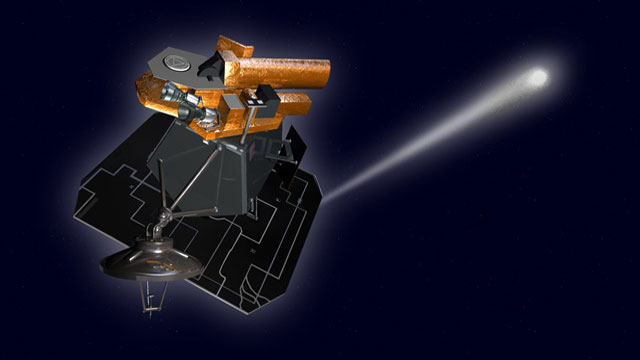Halloween as a Religious Holiday? You Better Believe It, Soldier

For most of us, Halloween is a kids’ celebration. Or perhaps it’s a chance for adults to play dress-up and to trot out the interminable sexy-maid or Elvis costumes.
But for a growing population of Americans, the holiday is returning to its Celtic and pre-Christian roots. That isn’t happening just within the New Age bastions of San Francisco and Los Angeles. If you want to watch the night of goblins and ghosties morph into a serious and historically grounded religious observance, look no further than the U.S. military.
Before Christianity became ascendant in the West, Halloween—more traditionally called by its Celtic name, Samhain (pronounced swain)—marked a seasonal change and a time to honor the spirits of departed relatives. Thanks to the growing numbers of modern U.S. soldiers who practice Wicca, Neopaganism, and other nature-based traditions, Halloween is recognized as a religious festival in the military, and is probably in line to become the nation’s next major faith-based holiday.
In matters of race and religion, so goes the military, so goes the nation. The number of Wiccans is building in the armed services (as in the rest of America) and they are attaining watermarks of recognition. In 2007, for example, the ACLU and Americans United for Separation of Church and state dealt a setback to the Bush Administration with twin lawsuits that compelled the Department of Veterans Affairs to offer Wiccan believers a pentagram on tombstones. Today, the five-pointed star appears on the VA website along with several other occult and esoteric “emblems of belief” for service members to choose from.
George W. Bush was on record from 1999 criticizing the decision of military brass at Fort Hood, TX, to accommodate the requests of Wiccans for a worship circle on the base grounds. “I don’t think witchcraft is a religion,” then-Governor Bush told Good Morning America. He wasn’t the only one who complained. Reacting to Wicca worship ceremonies at the base, Rep. Robert L. Barr (R-GA) wrote to Fort Hood’s commanding officer: “Please stop this nonsense now.” He threatened legislation and hearings. The military’s response was basically: cool your jets.
Since 1978, the Army’s Handbook for Chaplains has listed guidelines and descriptions for Wiccan practice, all written in remarkably fair and lucid language. “It is very important to be aware that Wiccans do not in any way worship or believe in ‘Satan,’ ‘the Devil,’ or similar entities,” reads the most recent 2001 revision of the Handbook. “…Wiccans do not revile the Bible. They simply regard it as one among many of the world’s mythic systems, less applicable than some to their core values, but still deserving of just as much respect as any of the others.”
The Handbook specifies October 31st—which it calls by the traditional names of “Samhain, Sowyn, or Hallows”—as a major festival or “Sabbat” for Wiccans. The original Celtic holiday became bound up with the Christian “All Saints’ Day” or “All Hallow’s Eve” during the Middle Ages. But twenty-first century Wiccans see it as a deeply rooted celebration of nature and ancestors. As the Army handbook ably explains it, the festival is “a means of attunement to the seasonal rhythms of Nature.”
The military’s sensitivity to Wicca is partly a matter of demographics. In 2005, the Pentagon counted religious preferences in the Air Force and discovered more than 1,800 active-service, self-identified Wiccans within that branch. Unless the Air Force has some special attraction for Wiccans, it would stand to reason that the numbers climb well into the thousands throughout the armed services as a whole.
Surveys have tracked similar patterns in America overall. As in the military, the increase in numbers may be attributable to demographers realizing that such believers indentify themselves under a multitude of names. In 1990, a survey conducted by the City University of New York counted only a few thousand self-identified Wiccans. By 2001, the same survey – having sharpened and expanded its categories – counted 134,000 Wiccans, 33,000 Druids, and 140,000 Pagans. These numbers square with a more recent survey from Trinity College which finds that the number of Americans who identify with “New Religious Movements” (which includes Wicca, Spiritualism, New Age, and other categories) grew from 1.29 million in 1990 to more than 2.8 million in 2008.
These developments and distinctions are not lost on the military. The U.S. Military Personnel System recognizes seven nature-based faiths: Pagan, Wiccan, Druid, Shaman, Dianic Wicca, Gardnerian Wicca, and Seax Wicca.
For their part, Wiccans acknowledge the military’s strides. “We see more discrimination in the civilian world,” a Fort Hood Wiccan Priestess, Marcy Palmer, told The Washington Post. “The military is actually much more sensitive.”
But not everything is daggers and roses for Neopagan service members. Wiccan chaplains and believers report instances of discrimination, sneers from disapproving peers, and a recent uptick of sectarian Christian prayers at ostensibly public military events and ceremonies. In the wake of the VA’s decision to permit pentagrams on headstones, the conservative Family Research Council began a campaign to argue that Wicca undermines military readiness by striking at unit morale and cohesion. So far, however, their arguments appear to have found little influence among top brass.
So, is anything at stake in all this beyond the pursuit of what some consider marginal beliefs and the morphing of a minor civic holiday into a recognized religious one? The answer is yes. America’s greatest purpose may be the protection of the individual’s search for meaning. If that search, in all its forms, is gaining increased recognition and understanding within the mainstream parameters of the armed services, it suggests that America continues to fulfill its founding purpose.





